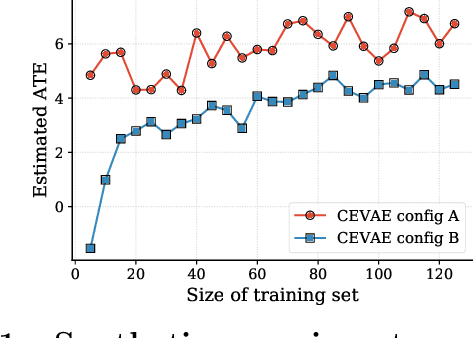A Causal Modeling Framework with Stochastic Confounders
Paper and Code
Apr 27, 2020



This work aims to extend the current causal inference framework to incorporate stochastic confounders by exploiting the Markov property. We further develop a robust and simple algorithm for accurately estimating the causal effects based on the observed outcomes, treatments, and covariates, without any parametric specification of the components and their relations. This is in contrast to the state-of-the-art approaches that involve careful parameterization of deep neural networks for causal inference. Far from being a triviality, we show that the proposed algorithm has profound significance to temporal data in both a qualitative and quantitative sense.
* preprint, work in progress
 Add to Chrome
Add to Chrome Add to Firefox
Add to Firefox Add to Edge
Add to Edge